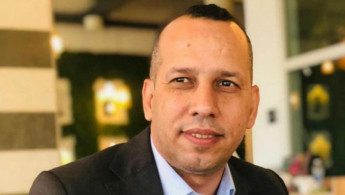Iraqi court acquits officer who confessed in killing Hisham al-Hashimi
An Iraqi court has acquitted a police officer previously convicted and sentenced to death for leading a group that fatally shot the renowned security analyst and government advisor Hisham al-Hashimi over three years ago in Baghdad, Judicial officials revealed to Reuters on Monday.
Al-Hashimi, a trusted advisor to former Iraqi Prime Minister Mustafa al-Kadhimi and who advised the government on strategies to combat the Islamic State group and reduce the influence of Iranian-backed Shia factions in Iraq, Lebanon, and Yemen, was gunned down outside his family home in Baghdad on 6 July 2020, by assailants riding a motorcycle.
A former officer in the Iraqi interior ministry, Ahmed Hamdawi, 38, confessed on Iraqi state media television in June 2021 that he had killed Al-Hashimi.
Hamdawi was sentenced to death by the Rasafa Criminal Court in May 2023 after being convicted of the crime.
However, Iraq's Federal Cassation Court decided in January to annul the sentence and refer the case back to "a competent investigating court."
The court issued its ruling after a retrial on Wednesday. One of the attorneys at the session stated that the court dropped the charges against Ahmed Hamdawi due to insufficient evidence, declaring that his previous confessions were not admissible for conviction.
Media outlets were not permitted to attend the session, as confirmed by the lawyer reading from the judgment. Ahmed Hamdawi denied all accusations against him, with the judges finding no legal basis to prosecute him. The judge decided to release him unless he was wanted in another case.
The decision has sent shockwaves across the nation, reigniting accusations of judicial incompetence, lack of independence, and susceptibility to political and security influences.
His death sent ripples of outrage throughout Iraq and the broader Middle East, with many demanding justice for the outspoken critic of influential political and militia factions.
Following al-Hashimi's murder, government officials told Reuters that he had been advising on plans to diminish the influence of Iran-backed groups and to bring smaller, quasi-military groups that oppose Iran under greater state control.
They asserted that al-Hashimi's killing was directly linked to his recent work concerning Iran-backed groups.
Officials from quasi-military groups allied with Iran deny any involvement in the murder. Some supporters of the Islamic State group celebrated his killing, but no group claimed responsibility and the government did not point fingers at any specific organisation.
Iraqi sources have revealed disturbing details, suggesting that the very parties and militias criticized by al-Hashimi may have exerted influence over the retrial process.
These groups, now part of a pro-Iran cabinet led by Prime Minister Mohammed Shia al-Sudani, allegedly to have played a decisive role in securing Hamdawi's freedom, allowing him to swiftly exit the country via Baghdad International Airport, with speculation pointing to Iran as his likely destination.





 Follow the Middle East's top stories in English at The New Arab on Google News
Follow the Middle East's top stories in English at The New Arab on Google News


